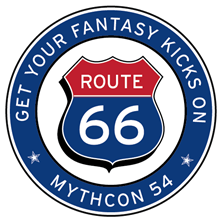Home > MYTHSOC > Mythlore > Vol. 41 (2022) > No. 2 (2022)
Abstract
The treatment of suicide in Tolkien’s narratives about Middle-earth—a topic surprisingly neglected by critics—helps to clarify one aspect of the relationship between Tolkien’s secondary world and his distinctly Christian view of primary reality. His writings capture the tragic pathos of self-destruction while developing and unfolding a larger, competing ethos of self-sacrifice and service to life. In order to explain the development of this life-affirming ethic, I begin by considering the paradoxical nature of death in Tolkien’s mythology as the “gift” of a benevolent creator. Next, I analyze prominent examples of suicide in The Silmarillion and the early legendarium more broadly. Finally, I consider the development of Tolkien’s philosophy of suicide in The Lord of the Rings, which discovers anew a distinctly Christian view of the act as an evasion of duty as right action and a usurpation of divine sovereignty.
Creative Commons License

This work is licensed under a Creative Commons Attribution-NonCommercial-No Derivative Works 4.0 International License.


